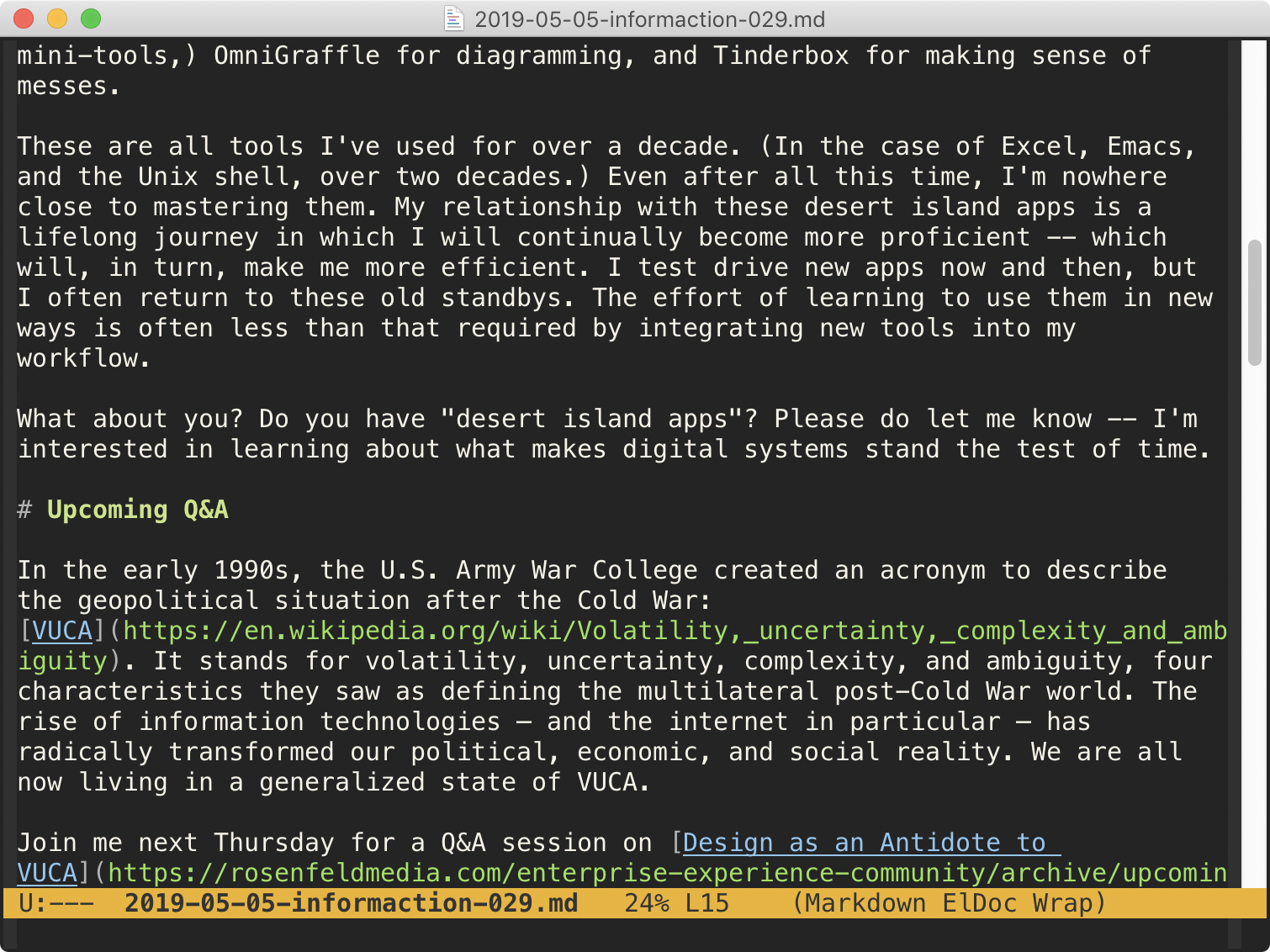I’m always looking for ways of optimizing my personal information ecosystem. By this, I mean focusing on the work rather than futzing with the environment where the work happens. Ideally, I’d log into my computer, do a bunch of work, and then log out without having to think too much about the tools I’m using or how I’m using them.
The challenge is that digital tools are constantly evolving. There may be a new app out there that eases a part of my workflow, or perhaps one of the tools I’m already using has a hidden feature I’m not using. Sometimes such innovations can lead to tremendous efficiency gains, so it’s important to step back and review the ecosystem every once in a while. It’s a tradeoff between spending time working on the work versus on the way we work. A subtle, but important distinction.
Earlier in my career, I devoted a higher percentage of my time to working on my ecosystem than I do now. My toolset has been relatively stable for a long time. In part, this is because I eventually realized that many “new and improved” digital tools are specialized adaptations of more general, deeper tools.
For example, when my family and I were preparing to move to the U.S., I bought an app that allowed me to catalog my book library. I spent quite a bit of time messing around with that app. Eventually, I realized it was actually a specialized spreadsheet – something that’s also true of many lightweight data management apps. Rather than spending time learning a new app that perhaps adds a couple of timesaving features (in the case of the library app, it was reading ISDN codes), I could devote the time instead to figuring out how to do what I needed with the tool I already had: Excel.
Excel is an example of what I call a “desert island” app. Like the concept of desert island books (i.e., the short list of books you’d like in your bag if you were to be stranded in a desert island), these are digital tools that I could use to get my work done even if I had access to nothing else. They tend to be deep and broad, have large and devoted communities of users, and have been around for a long time. Other tools that fall into that category for me are the Emacs text editor, the Unix shell (along with its suite of “small pieces loosely joined” mini-tools), OmniGraffle for diagramming, and Tinderbox for making sense of messes.

Editing my newsletter in Emacs.
These are all tools I’ve used for over a decade. (In the case of Excel, Emacs, and the Unix shell, over two decades.) But even after all this time, I’m nowhere near mastering them. My relationship with these desert island apps is a lifelong journey in which I will continually become more proficient – which will, in turn, make me more efficient. I test drive new apps now and then, but I always return to these old standbys. The effort of learning to use them in new ways is often less than that required by integrating new tools into my workflow.
What about you? Do you have “desert island apps”? Please do let me know – I’m interested in learning about what makes digital systems stand the test of time.